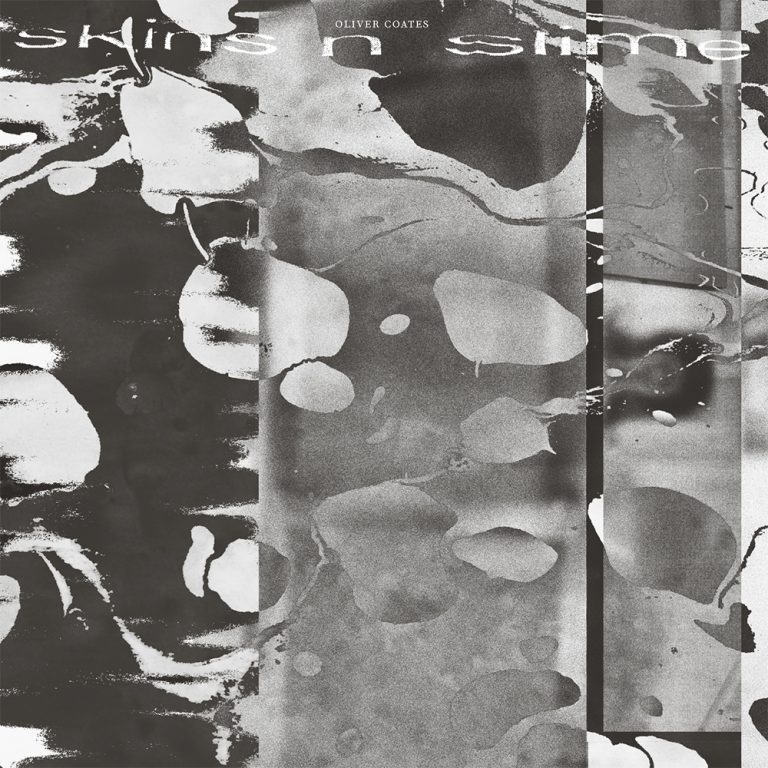Although Oliver Coates maintains the cello as his primary instrument, still regularly playing with the likes of the London Contemporary Orchestra and the Aurora Orchestra, he doesn’t let it restrict the realms into which he pushes his own music. In 2016 he released the Mica Levi collaboration Remain Calm and his own Upstepping, introducing a wider audience to his classical-meets-electronica style, which he expanded further upon with the percolating sci-fi of his 2018 album Shelley’s On Zenn-La.
The follow-up to Shelley’s, his new record skins n slime diverts from the dancefloor-skimming nature of his previous releases and hews more towards drone and classical. For the completist, his 2019 versions of modern alt-composer John Luther Adams’ pieces “Canticles of the Sky” and “Three High Places” form an interesting signpost to where he is now, as they found him putting his main instrument in the spotlight again. That remains true on skins n slime, but here he is often less interested in melody than he is in purely engulfing the listener – only to then take their breath away when the intensity recedes and a moment of pure poetic tranquillity emerges.
There are no significant quotes from Coates around the release of skins n slime, which leaves it up to the listener to make their own judgements about how to approach it – to fashion their own mental craft in which to traverse the vast expanses of the record, if you will. He has of course offered us morsels of clues in the album and track titles, but they still leave plenty open to interpretation. The title skins n slime does not ostensibly do justice to the sheer gorgeousness of what Coates has produced on the record, but it is perhaps both an indication and a challenge to the listener to think more about the pieces in textural terms, and to not merely ascribe beauty to everything but perhaps try to sense some deeper feeling within.
He throws down this challenge straight away with the five-part suite “Caregiver” – already a word that will have so many varying emotional connotations for everyone. The temptation is to hear the suite as a cycle of daily treatment, and that certainly seems to be the case with “part 1 (breathing)”, as gentle waves of repeated piano chords abut wistful cello, rendering a tender environment. This then moves into the high and mournful unfolding of “part 2 (4am)”, the time in the title giving us an indication that this is a nocturnal scene, but the characters within the listener’s imagination will be unique to each. The remaining three parts of “Caregiver” are just as open to infinite ways of understanding, Coates ensuring the drift through the more overtly harmonious “part 3 (slorki)” and “part 4 (spirit)” lull us into a heavenly space – before the more tempestuous and thorny “part 5 (money)” finishes the suite with a beguiling sting.
The rest of skins and slime continues to switch back and forth between elegiac beauty and sinister saw-like production. As utterly captivating and breath-taking as the romantic “Philomena Mutation” and the stately “Still Life” are, it is the songs when he combines the overt prettiness of his instrument with more physical sounds that are most compelling, and indicate a fertile ground yet to be fully uncovered by the intrepid musician. “Butoh Baby” may be the finest fusing of delicacy and disharmony, as it begins with the poise of the titular Japanese dance, his cello skipping across the droning undertone with freedom. But, as the sheer sparkling grace of his lead melody increases, Coates is determined to keep layering the glowering undercurrent so that you’re never left to fully settle in, and the effect is divinely unsettling.
On “Reunification”, Coates makes his cello sound as if it is being crushed and stretched as its played, but there’s still melody that elevates it from a gorgeous drone and suggests a classical approach on shoegaze. Exploration into this realm is furthered on “Honey”, where buzzing static completely coats the central orchestral sound, resulting in a stunningly bristling piece that sounds like a descendant of the music Wolfgang Voigt releases as GAS.
skins n slime may not have the conceptual through-line of Shelley’s on Zenn-la to tie it together, but Coates’ own enigmatic style is more than enough to hold its bubbling and over-flowing contents together. Throughout, he challenges the listener to think about sound and texture in a different way, to open up possibilities of what is classical, what is drone and what constitutes elegance. By the end, you’ll hopefully find that skins n slime is a perfect title for a record this overwhelmingly layered and engrossing.

